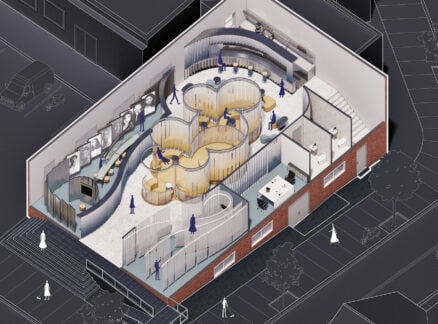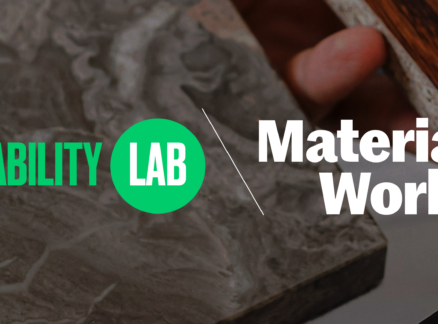July 1, 2005
Changing Outlook
Two young architects design a faceted interior for a clothing store in boomtown Buenos Aires.
In the Palermo Viejo district of Buenos Aires, Argentina, the streets are filled with low-rise buildings, and shade trees line the pedestrian-friendly sidewalks. After a flurry of building in recent years, the neighborhood has emerged as one of the city’s hip districts, sprouting cafés and shops—including the women’s fashion store Emme, which opened on Thames Street last fall.
As well as launching the contemporary fashions of owner-designers Laura Emsani and Romina Mesri, both 27, Emme introduced the emerging architectural talents of Tristan Dieguez, 32, and Axel Fridman, 33, partners in the local firm Dieguez Fridman.
Emme is housed in a former bakery, so the architects limited their space-age design to the interior, leaving the historic facade intact. They clad the space in a continuous wrapper of native incienso wood, which comprises the floorboards, climbs the walls, and forms several arches in the ceiling. The space was small but had tall ceilings, so Dieguez and Fridman focused their energies vertically on a series of arches that break at different points, like the crests of waves. Designed in Maya 3-D software, the cladding was CNC-cut in a woodshop and assembled on site. “We wanted to use regular materials, something you could find anywhere,” Fridman says of their somewhat traditional choice. The final effect plays with shoppers’ perceptions. “The perspective changes a lot,” Fridman says, “so the place feels bigger than it is.” The changes in perspective, created by shifts in the ceiling, also frame different views of the street.
The partners—who teach at the University of Buenos Aires and have worked for Cesar Pelli, and only began their own practice two years ago—are beginning to win large commissions in Argentina. According to Fridman, the cultural climate is exciting because opportunities to do interesting work are emerging as the country moves toward a more open economy. “You never know how long a business or neighborhood will last,” he says. “There’s very much a sensation that you have to hurry. Right now Argentina is exploding, so we really need to be out exploring new opportunities.”
Meanwhile, the word panadería remains carved on Emme’s limestone facade, reminding passersby of the past in a neighborhood that’s rapidly being remade.





